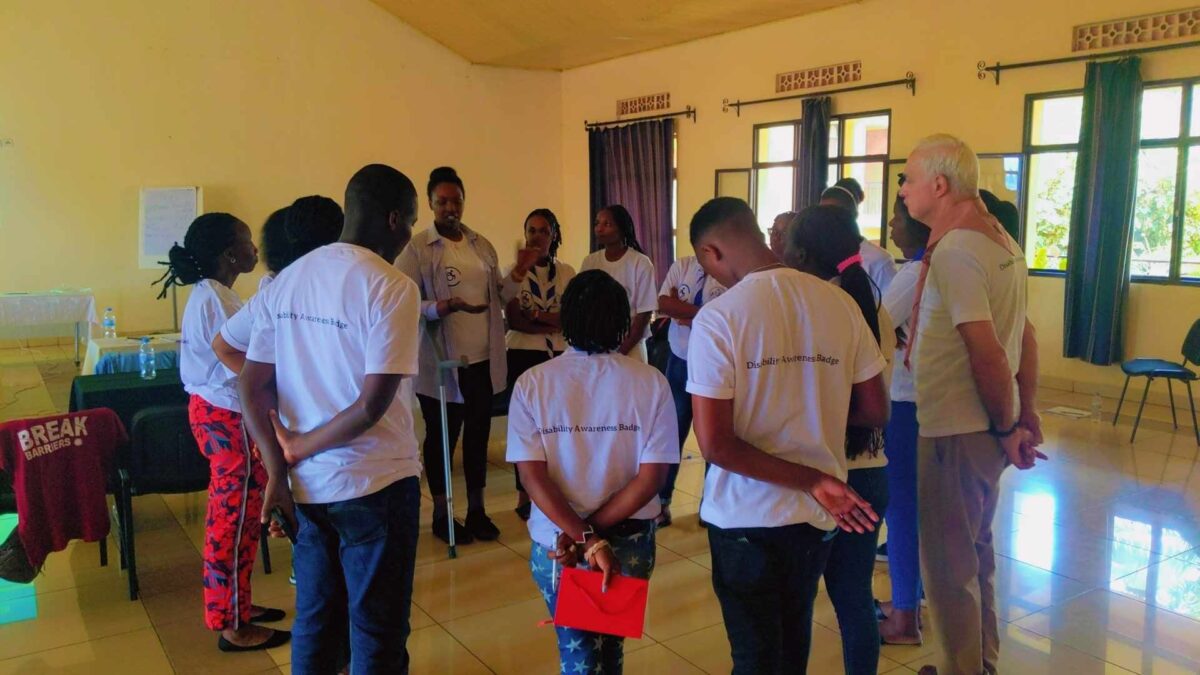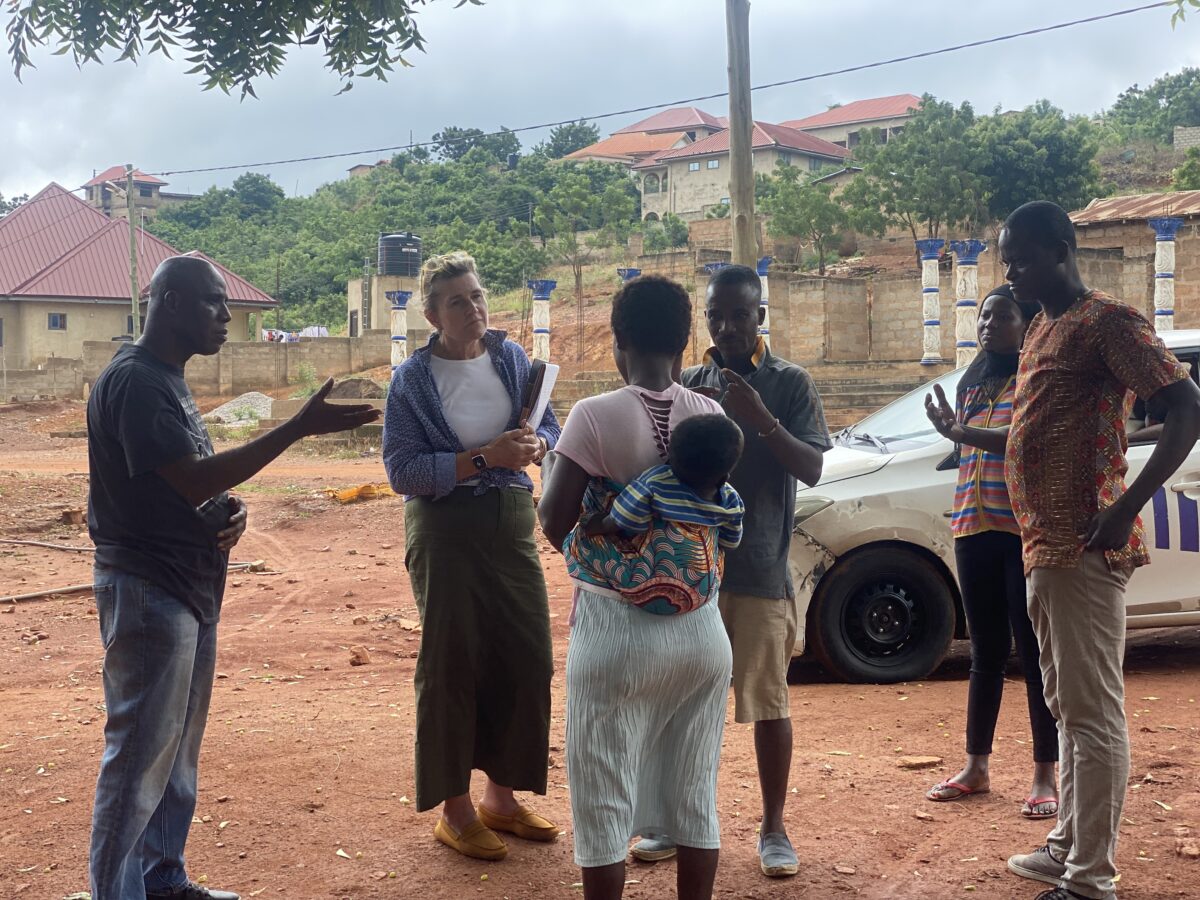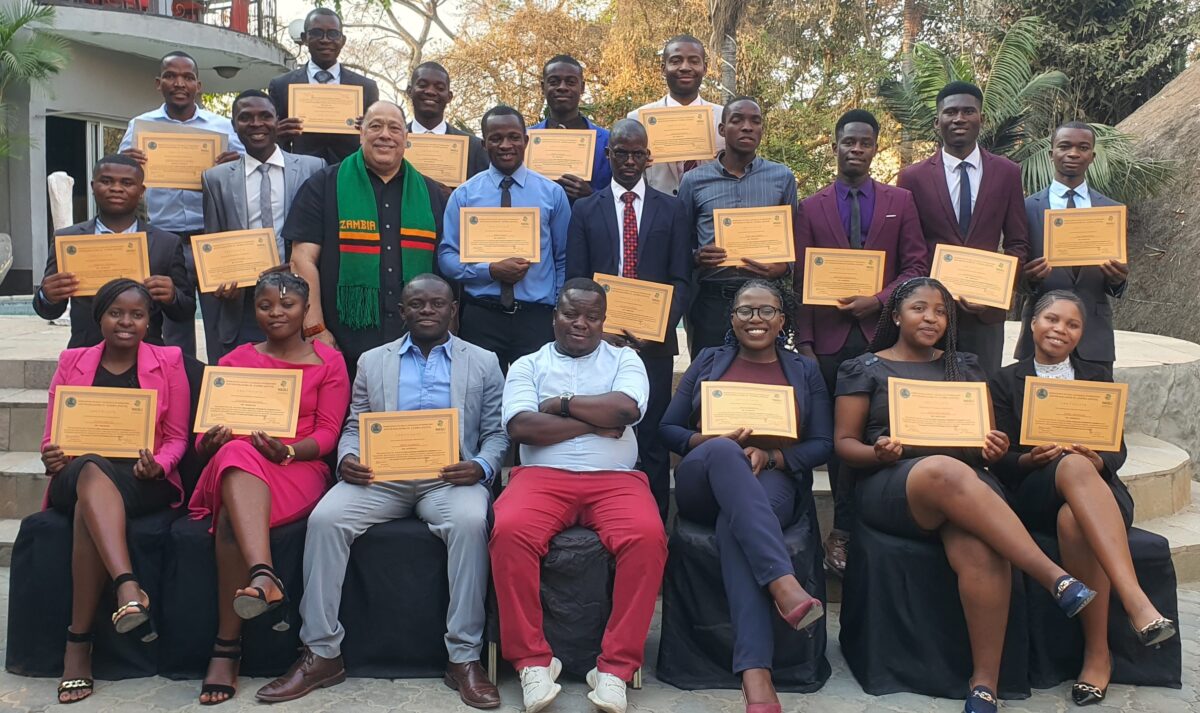Promoting Rights for People with Disabilities
Celebrated annually on December 9, International Day of Persons with Disabilities promotes the rights of people with disabilities worldwide. At the heart of these rights is full participation in and equal access to all areas of society, including physical and digital spaces. Through Reciprocal Exchange opportunities in the summer and fall of 2023, teams collaborated on projects highlighting disability rights and issues in Rwanda, Sierra Leone, Ghana, and Zambia.
Disability Merits Awareness

In September 2023, Tom DeFayette and 2021 Fellowship Alumnus Jean Paul Sekarema from Rwanda trained youth scouts on disability awareness and how to identify disability-specific services in Kigali, Rwanda.
Tom is an employment specialist and assists people with intellectual and developmental disabilities to find employment and excel in their work. Jean Paul founded the Rwanda Organization for People with Cerebral Palsy (ROP-CP) and works as a Project Manager at the National Union of Disabilities’ Organizations in Rwanda (NUDOR), supporting youth with disabilities in health and education.
During the Reciprocal Exchange, the team introduced a Disabilities Awareness merit badge for scouts, produced a Disabilities Awareness Workbook, and developed a handbook training for scouts. Motivated by his own experience with disabilities and challenges of inclusion, Jean Paul foresees the badge and training as a way to engage with young leaders in fostering an inclusive society.
“I aspire to create a world where every individual is respected regardless of their disabilities, where humanity takes precedence over impairment or disability.”
Jean Paul Sekarema, 2021 Fellowship Alumnus, Rwanda
Promoting Inclusive Higher Education
In October 2023, Erin Benson and 2019 Fellowship Alumnus Abubakarr Kamara from Sierra Leone implemented a Disability Awareness and Inclusion Training at two universities to address gaps in disability access and inclusion in higher education.
Erin Benson serves as the Director of the Disability Resources Center and University Testing Services at the University of Georgia. Abubakarr is the national coordinator for Hope for the Blind and advocates for the rights of students with disabilities on the radio and at the university. He also mentors visually impaired students and teaches Braille.

During their Reciprocal Exchange, the two developed workshops to raise awareness and increase initiatives for disability inclusion in education. A key lesson the pair took away was “the importance of listening and creating space for people to share their experiences,” emphasizing the importance of hearing and supporting people with disabilities and removing barriers that prevent them from full participation in their communities.
After the implementation of their Reciprocal Exchange project, the pair created a handbook that can be adapted to various environments and cultural contexts of the respective countries in which trainings are implemented.
“Now is the time to work to remove barriers that prevent [disabled youth] from being able to pursue their right to an education.”
Erin Benson, Reciprocal Exchange Participant
Establishing Accessible Healthcare Services

In August 2023, U.S. professional Dawn Carey and 2021 Fellowship Alumna Alice Aryeetey implemented a project to increase access to reproductive and sexual health information for deaf women in Ghana. Dawn is the Director of Global Health and Development at the Dickey Center for International Understanding, and Alice is the Managing News Editor of GHOne TV & Starr FM. As a health and disability reporter, Alice uses media as a tool for change to raise awareness of the needs of people with disabilities and to influence policy changes that will improve their quality of life.
Together during their Reciprocal Exchange, they administered clinical training programs to healthcare professionals, including midwives, nurses, and doctors, and co-developed reproductive health communication tools for Deaf women. Their project addressed communication gaps and highlighted unique issues Deaf women experience in accessing quality sexual and reproductive healthcare in Ghana. Their collaboration was featured in a Ghana StarrFM article.
“It is important for everyone to join in the fight for and pursuit of an inclusive society.”
Alice Aryeetey, 2021 Fellowship Alumna, Ghana
Promoting Accessible Information for All

In September, U.S. professional Anthony Aramburo and 2019 Fellowship Alumnus Obed Mambwe from Zambia worked closely with the Zambia Association of the Deaf to create activities specifically geared to enhancing sign language acquisition skills in Lusaka.
Anthony is a retired special education professor and currently serves as the Board Liaison for the New Orleans Black Deaf Advocations. Obed is a senior television sign language interpreter and founded the Federation of Sign Language Interpreters and Translators of Zambia (FSLITZ). During their Reciprocal Exchange, they trained 26 interpreters from FSLITZ to strengthen their fluency in Zambian Sign Language (ZSL). The Zambia Deaf Community and FSLITZ are currently striving for ZSL to be recognized as an official language in Zambia.
Anthony shared that after the project, he “felt empowered to come back to my home state and work with our local Deaf Community leaders to re-ignite the call for services that have been lacking for our local Deaf Community members.” He intends to continue working with Obed and FSLITZ to maintain training opportunities for Zambian Sign Language Interpreters, including developing a standard curriculum at the post-secondary level.
“Society/people should take a keen interest in learning about different types of disabilities and their abilities and how best they (society) can accommodate people with disabilities and offer them equal opportunities.”
Obed Mambwe, 2019 Fellowship Alumnus, Zambia
Written by Asheley Ashittey.